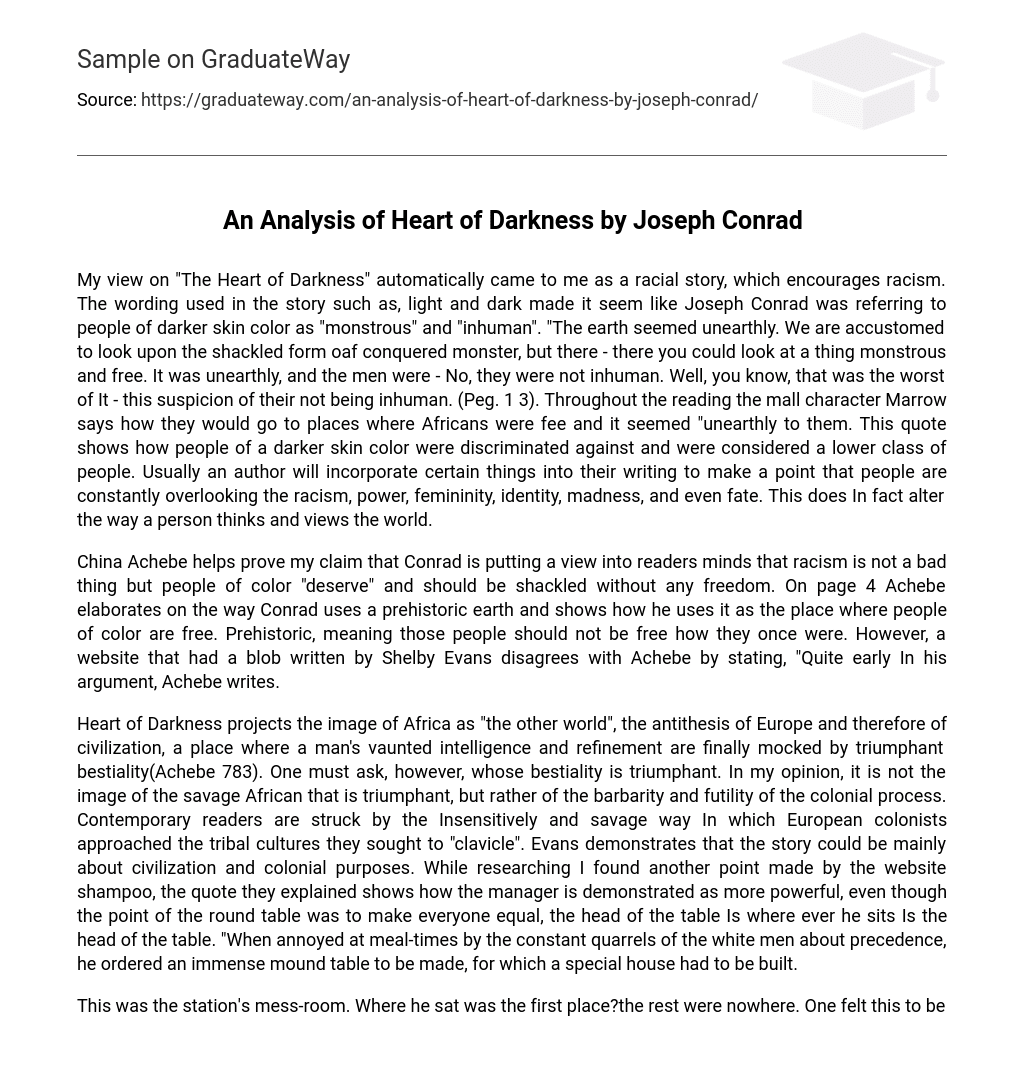My interpretation of “The Heart of Darkness” is that it portrays a racial narrative that promotes racism. The language used in the story, such as references to light and dark, imply that Joseph Conrad is deeming individuals with darker skin color as “monstrous” and “inhuman.” The quote “The earth seemed unearthly…” (Peg. 1 3) highlights the discrimination against people of darker skin color, suggesting they are seen as lower class. Writers often incorporate certain elements in their work to draw attention to topics like racism, power dynamics, femininity, identity, madness, and fate. These themes ultimately shape an individual’s perception and understanding of the world.
The passage argues that China Achebe supports the claim that Conrad promotes racism and the idea that people of color should not have freedom. Achebe points out Conrad’s use of a prehistoric setting to portray people of color as once being free but now deserving of being shackled. However, a website disagrees with Achebe’s interpretation.
The novel Heart of Darkness presents Africa as a contrasting world to Europe, symbolizing the lack of civilization and the triumph of bestiality over intelligence and refinement (Achebe 783). However, one must question who is actually triumphing through bestiality. In my perspective, it is not the savage Africans who are victorious, but rather the barbarity and pointlessness of the colonial process. Modern readers are shocked by the insensitivity and brutality with which European colonizers approached the indigenous cultures they aimed to “civilize”. Evans argues that the central theme of the story could be focused on civilization and colonial goals. During my research, I came across an interesting point made by the website shampoo, where they explain a quote that demonstrates the manager’s display of power. Despite the intention of equalizing everyone at the round table, the person who sits at the head of the table becomes its de facto leader. “When bothered by constant quarrels among white men regarding precedence during meals, he ordered a huge round table to be created, requiring a special house to be built for it.
This was the mess-room of the station. The first place where he sat was the only place that mattered; the rest were insignificant. He held this belief firmly. ” (1.52). Racism, colonialism, and femininity are still apparent to me. “[Regarding the black slaves at the first station]: However, these men could not be considered enemies in any way. They were referred to as criminals, and the law had sought them out, like exploding shells, an unsolvable mystery brought from overseas.
All their small chests heaved in unison, their nostrils widened with intensity, and their eyes gazed steadfastly uphill. They walked past me as if I were nothing, not even sparing a glance, displaying a total apathy resembling that of desolate savages. This quote serves as the foundation for my belief that this story is primarily about racial discrimination rather than feminism or fear. While there are various themes and moral messages within the narrative, it is the presence of racism that stood out to me the most, resonating with my own perception of the world and this particular text.





